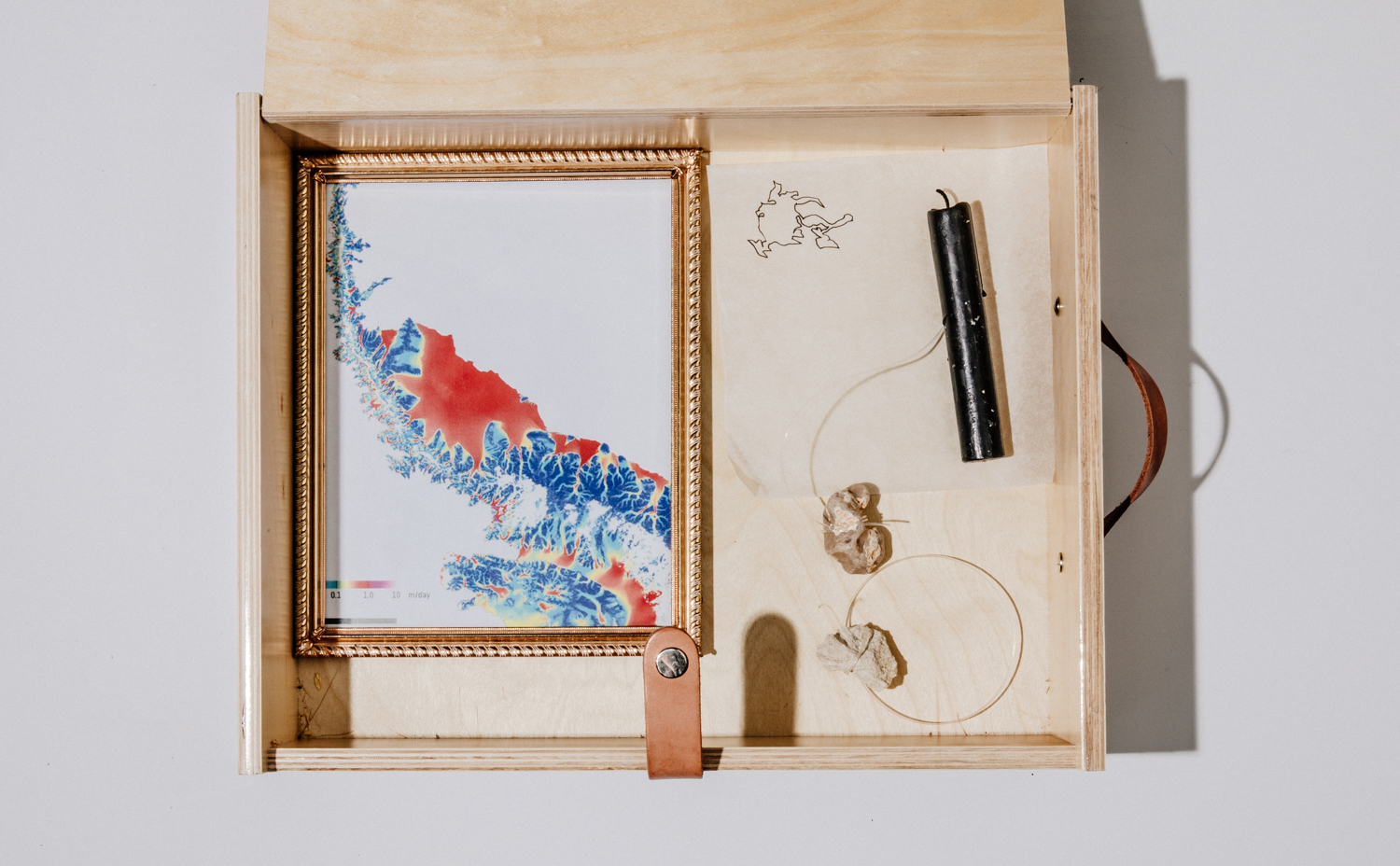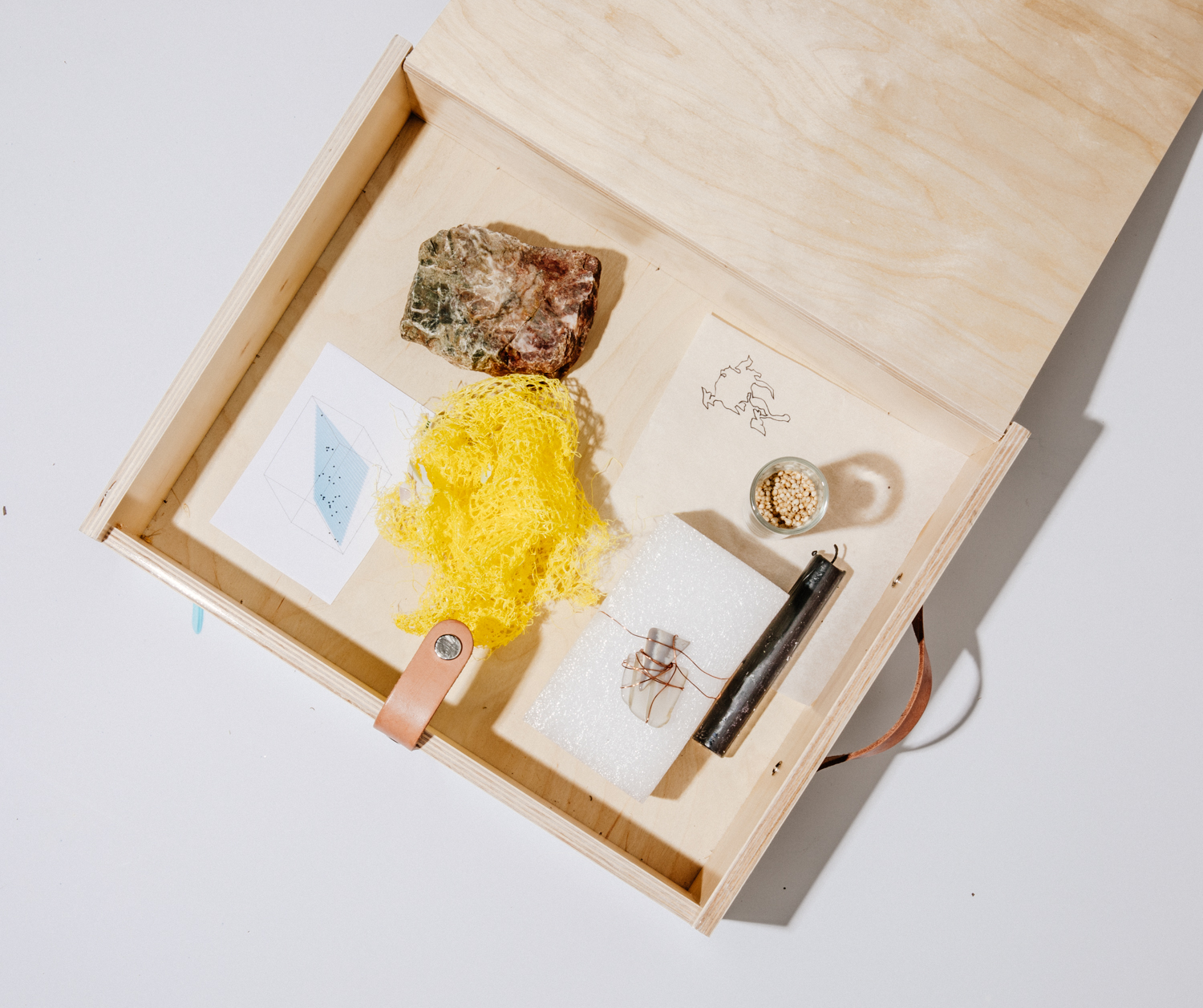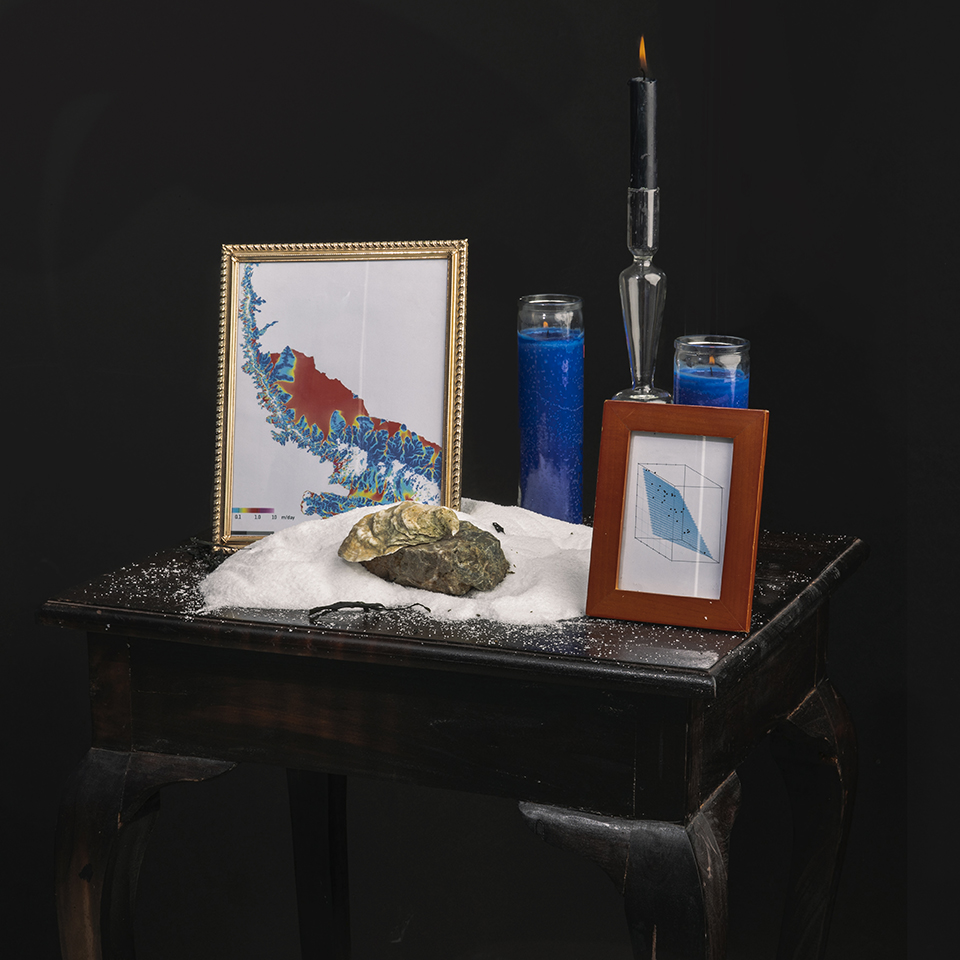Semi-Portable Altars, 2019
plastic, fossils, styrofoam, grains, glass, seaweed, plastic netting, and found objects
"If we are to survive through a long future, we must stay in contact with our long past." —Freeman Dyson
Through plastic, we "recognize a remarkable lifespan: crude oil formed 3.4 million years ago in rocks under the Caspian comes to rest on the bed of the Atlantic [as a frag-ment of a plastic container] for the next 10,000 years. Between these two stretches is a tiny window of transformation. It might take just 22 days for Azeri oil to be transported from beneath the Caspian to the Munchmunster plastics factory. Then the container could be moulded, filled, sold and dis-carded in the span of the following 40 days. In the space of only two months, this oil is extracted, transported, traded, transformed and transformed again before it is sold and ultimately trashed." —James Marriott and Mika Minio-Paluello, Platform London
A photo series and proposed installation of future climate "altars"—pseudo-secular sites for memorializing our relationship with the natural world. These future altars include framed photos of melting glaciers, sustainable grains like barley and sorghum, salt from dried up lake beds, fossils, seaweed, plastic detritus, styrofoam, and weather pattern renderings. Some of them are portable, as migration will be more of the norm as the climate makes many currently populated coastlines, arid regions, and islands uninhabitable. Rachel Carson is shown here, for her role is shifting our relationship with nature from a conservationist / Romantic separateness, to an inextricably bound ecology. Her work is but one pivotal moment among the thousands of years of indigenous land practices before her.





